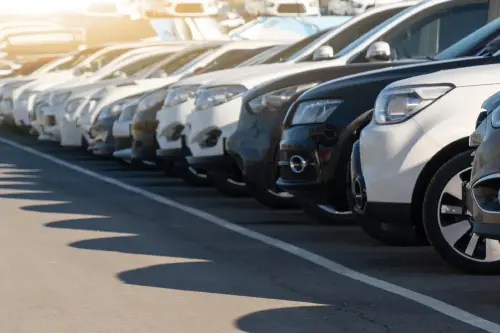Embarking on the journey to purchase a used car can be as exciting as it is daunting. The allure of a cheaper price tag compared to a new vehicle is strong, but so too are the risks associated with making a second-hand purchase. With the right knowledge and preparation, you can navigate the market to find a true gem. Here’s a guide to essential tips for buying a used car, revealing the secrets every buyer should know to ensure the wheels you drive away with are less 'lemon' and more 'treasure'.

First, understand your budget. It’s not only about the purchase price; consider the insurance, tax, fuel, and potential repairs down the road. Buying a car is a significant investment and having a clear idea of what you can realistically afford can prevent financial strain later.
Do your research before even setting foot on a dealership lot. Decide on the type of car that best suits your needs. Are you looking for a city zip-around, a family estate for those weekend adventures, or perhaps something a bit sportier? Check out reviews and safety ratings for the models you’re interested in. Websites like Parkers and Autotrader provide valuable insights into market value, helping you to understand if a seller’s price is fair.
Next comes the vehicle's history. A full service history (FSH) can speak volumes about the car’s past care and can forecast future reliability. A car with a spotty or nonexistent service record could be harbouring costly problems. In the UK, you can use services such as HPI Check to uncover the car's history, including prior accidents, outstanding finance, and even if it’s been reported as stolen.
When inspecting the car, be methodical. Examine the bodywork for rust, inconsistent paintwork or misaligned panels which could suggest past accidents. Check the tyre tread depth, which should be legal at a minimum of 1.6mm across the central three-quarters of the breadth of the tyre and around the entire outer circumference. Inside the car, ensure everything works from the air conditioning to the infotainment system. Don't overlook anything; every faulty button could be a bargaining chip or a sign to walk away.
It’s imperative not to shy away from under the hood. Even if you're not a mechanical whiz, there are basic checks you can conduct. Look for leaks, check the engine oil via the dipstick (it should be clean and at proper levels), and keep an eye out for signs of poor maintenance like cracked hoses or belts. If in doubt, bringing along a knowledgeable friend or a professional mechanic to review the car can save a great deal of trouble down the line.
A test drive is more than just about seeing if you like the feel of the car. You’re listening and feeling for issues: does the car pull to one side, are there strange noises when turning, or does the engine struggle to maintain power? Use this time to test out all the gears, brakes, and steering for smooth operation. A test drive should be comprehensive, allowing you to experience the car in a variety of road conditions, from the motorway to stop-and-start traffic.
Negotiation is part of the used car buying process. Don't be afraid to haggle; it's expected. However, approach it with respect and knowledge. Highlight concrete reasons from your inspection and test drive to justify a lower offer. If done tactfully, you can secure a fair price for both parties.
Aside from the car itself, it’s critical to review all paperwork thoroughly. Ensure the V5C registration document is present and correct, showing the seller as the registered keeper, and that the details match up with the car. Scrutinize MOT certificates and any receipts for prior work. The more documentation, the clearer the car's history.
When it’s time to make the payment, be wary of sellers pushing for cash transactions. Bank transfers are traceable and offer a level of protection cash simply can’t. As for deposits, they’re a sign of commitment but ensure you get a receipt and understand under what circumstances it may not be refundable.
Finally, remember to update car insurance before you drive away. It’s illegal to drive without valid insurance in the UK, and you’ll want to ensure you’re covered from the moment you take ownership.
Buying a used car need not be a minefield. With due diligence and a touch of savviness, it can be a fulfilling venture—securing you a ride that meets both your desires and your financial reality. The road to used car ownership is lined with opportunities to save money while finding a vehicle that will serve you well. Take your time, trust your instincts, and let knowledge guide your purchase. Happy car hunting!
